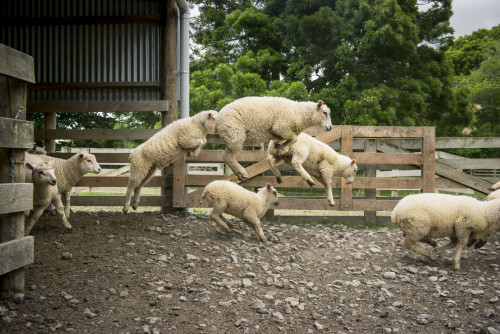Drought advice for farmers and lifestylers
We’ve put together some information for rural landowners and occupiers about coping during dry periods.

Whether you are on a rural supply or on the city’s reticulated supply, you can make sure your stock have enough water to drink. If you operate under a resource consent for water take, check that you are adhering to the terms of your consent.
If you are on an independent water supply – i.e. your water comes from a community water scheme, a stream, bore or spring, and you don’t get a water bill from the Council, then rural restrictions apply.
When rural water restrictions are in place, water may only be used for essential purposes i.e. firefighting, human drinking water, water for stock and household use e.g. showers.
Water may not be used for any other purpose including crop irrigation, garden watering, washing cars, houses, or driveways.
If you have water stored for firefighting, its important to retain this water for that purpose so that it is available when fire risk is high.
Farming through a drought.
We've put together some farm management information for drought conditions (420KB PDF)
Rainwater harvesting
If you don't already have a rainwater tank for domestic use, check out our rainwater harvesting info here
You'll also find some great ideas for water conservation here
How much water do you need to store?
Since the Nelson Resource Management Plan (NRMP) became operative in 2004, a rural house is required to have either (unless connected to a community scheme with firefighting storage)
- A sprinkler system with 7000 L of water available OR
- Water tanks with 45,000 L storage for firefighting purposes
AND
- 15,000 L storage available during periods of minimum flow (unless connected to a community scheme with storage for minimum flow)
If a house only has 45,000 L storage then at least 23,000 L must be available for firefighting. To find out the full details see the applicable NRMP rules at RURr.28 (556KB PDF)
How much water do your animals need?:
If you are keeping livestock, consider de-stocking before you run out of feed or water. Contact Federated Farmers Feedline for support.
Average drinking water requirements for farm animals are:
- Beef cattle: 50 litres/day (yearlings 30 litres/day, calves 20 litres/day)
- Dairy: 90 litres/day (for a 450kg cow)
- Deer: 15 litres/day (for a 125kg adult)
- Sheep: 7 litres/day (adult ewe without lambs)
- Goat: 6 litres/day Horse: 45 litres/day (grazing)
- Pig: 15 litres/day (adult with no piglets)
(source – mpi.govt.nz)
Useful Contacts:
- Ministry for Primary Industries has helpful information for people dealing with dry weather conditions and rural water restrictions.
- Federated Farmers (support and feedline) ph 0800 327 646, option 2.
- animalwelfare@mpi.govt.nz or 0800 0083 33 for animal welfare concerns
- Rural Support Trust ph 0800 787 254
- Your neighbours – keep in touch, ask for help if you need it and offer help if you see someone in need. Communities that rally together in challenging times are far more successful at bouncing back.
Resources
- Dealing with drought conditions (MPI)
- Drought in a changing climate (MPI)
- Meeting the challenges – Key points for getting through droughts (MPI)
- Extreme dry fact sheet (NZ Beef and Lamb)
- Drought advice (Dairy NZ)
- Managing pasture through drought (Agriseeds)
- Rural Support Network
Long Range Weather outlook
NIWA has a useful Seasonal Weather Outlook for three months ahead, updated monthly, which may help with planning ahead. You can find our more here
To follow the current river flows visit Council's river and stream water flows page
